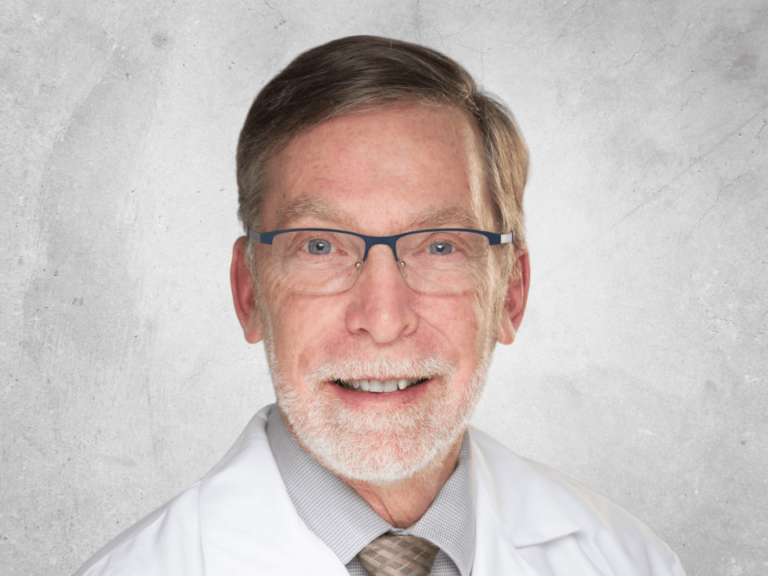

In 2023, Jeffrey S. Weber was named a Fellow of the Academy of Immuno-Oncology, an honor established by the Society for Immunotherapy of Cancer.
Weber died Aug. 18, 2024 (The Cancer Letter, Sept. 6, 2024).
After receiving the accolade from SITC, Weber sat down with the society to reflect on his career.
He discussed what advice he would give to his younger self—including to “never ever ever ever blow your cool,” appreciate the sacrifices made by your family, and verse yourself in the scientific literature.
Weber also pointed to the importance of mentorship, and shared that turning points in his career came from meeting oncology pioneers Jim Darnell, Cy Leventhal, Steven Rosenberg, and Peter Jones.
But Weber acknowledged that early-career success has become harder to obtain.
I would think the key turning points for me relate to meeting different mentors. I mean, it really emphasizes the importance of a mentor, or as we say colloquially, having a rabbi. Not in a religious sense, but in a professional sense, in your professional life.
“I think today it’s become much more obvious that you have to nurture these people along. It’s so much more difficult today to make a career as a physician-scientist or a basic scientist in translational areas,” Weber said. “It’s just so much more important now to be putting effort and resources into promoting the careers of the junior faculty.”
Obviously, with time there comes some wisdom, and I would say first, on the trivial behavioral level, it’s never ever ever ever blow your cool. I think that’s extraordinarily important for a physician, but it’s important for anyone.
For Weber, his induction as a fellow of the Academy of Immuno-Oncology was more than just an award.
“Being a fellow of the Academy of Immuno-Oncology means I’ve earned the respect of my peers and my colleagues, and that means a huge amount to me—more than almost any other honor that I could receive,” Weber said.
A video and transcript of this interview with Weber is available on the Cancer History Project:


Interview with Jeffrey S. Weber, 2023 FAIO Inductee
By Society for Immunotherapy of Cancer, Oct. 4, 2024
The Academy of Immuno-Oncology was established by the Society for Immunotherapy of Cancer to honor individuals who have launched the field of cancer immunotherapy into the breakthrough cancer treatment it is today and bring together the brightest minds in the field to continue to advance SITC, the field, and the next generation of immuno-oncologists.
Annually, SITC conducts an open call for nominations and inducts a new class of Fellows into the Academy of Immuno-Oncology, one of the society’s most prestigious honors. (Actively serving nomination committee members or Board members are not eligible for nomination.) Fellows of the Academy of Immuno-Oncology bear the designation “FAIO.”
Professor Weber, then deputy director of the Laura and Isaac Perlmutter Cancer Center (PCC), worked with a multidisciplinary team of medical and surgical oncologists, dermatologists, and pathologists to treat patients with melanomas ranging from the most common early lesions to the most complex. He served as co-director of PCC’s Melanoma Research Program, and is head of Experimental Therapeutics at PCC, overseeing work in early developmental therapeutics.
Professor Weber’s clinical and research interests were primarily in the field of immunotherapy for cancer. He worked at the forefront of new ideas in immunotherapy for treating patients with melanoma and managing the side effects of these novel therapies. He has been instrumental in the development of ipilimumab for melanoma, publishing some of the earliest papers showing its efficacy, and was an early advocate for the use of checkpoint inhibition as adjuvant treatment, culminating in the publication of the New England Journal of Medicine work showing benefit for the PD-1 antibody nivolumab compared to ipilimumab for resected high risk melanoma. He was also involved in a large variety of clinical trials, including trials for melanoma vaccines, protocols involving adoptive cell therapy, and novel immunotherapy trials for patients with melanoma.
This column features the latest posts to the Cancer History Project by our growing list of contributors.
The Cancer History Project is a free, web-based, collaborative resource intended to mark the 50th anniversary of the National Cancer Act and designed to continue in perpetuity. The objective is to assemble a robust collection of historical documents and make them freely available.
Access to the Cancer History Project is open to the public at CancerHistoryProject.com. You can also follow us on Twitter at @CancerHistProj, or follow our podcast.
Is your institution a contributor to the Cancer History Project? Eligible institutions include cancer centers, advocacy groups, professional societies, pharmaceutical companies, and key organizations in oncology.
To apply to become a contributor, please contact admin@cancerhistoryproject.com.








